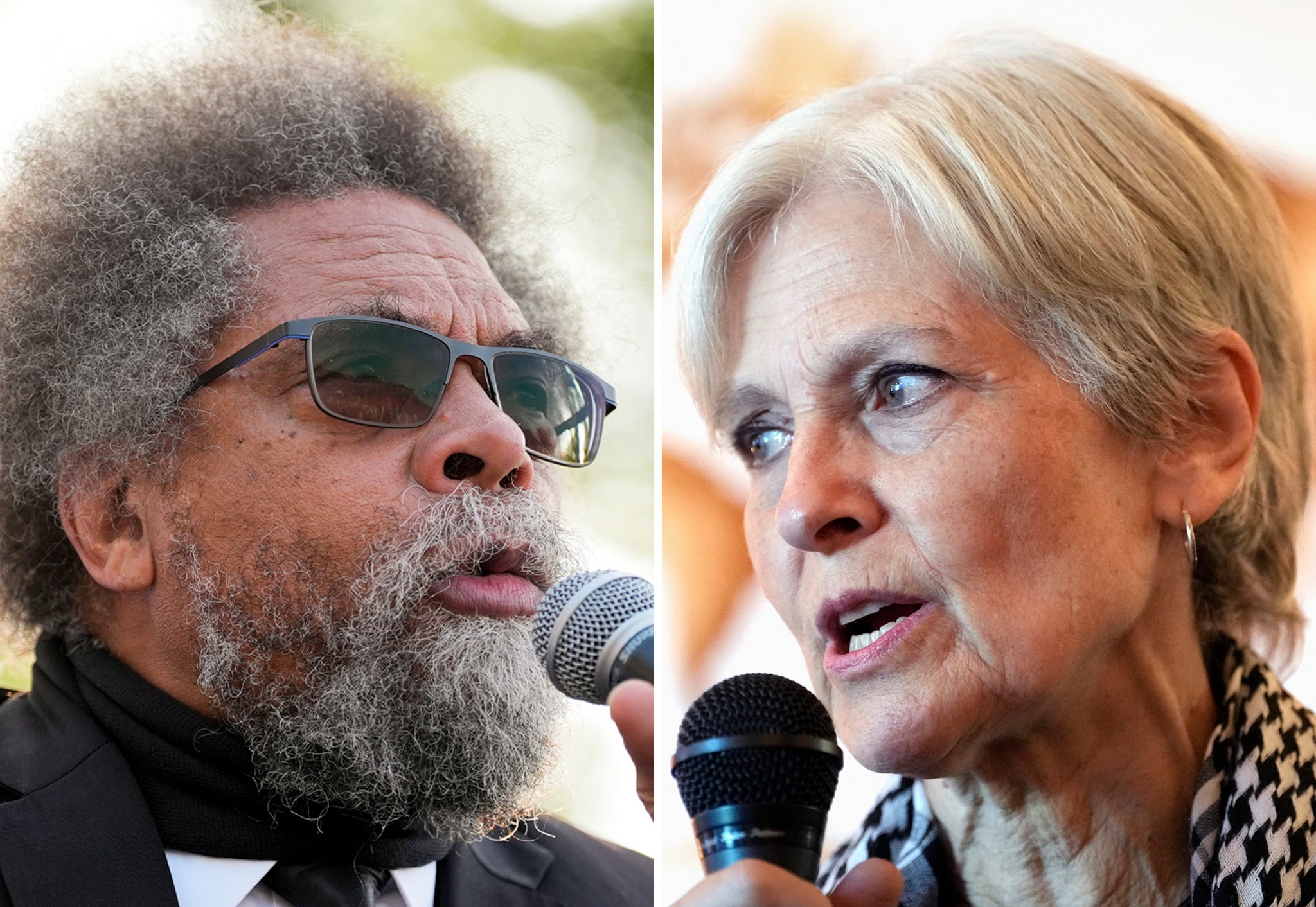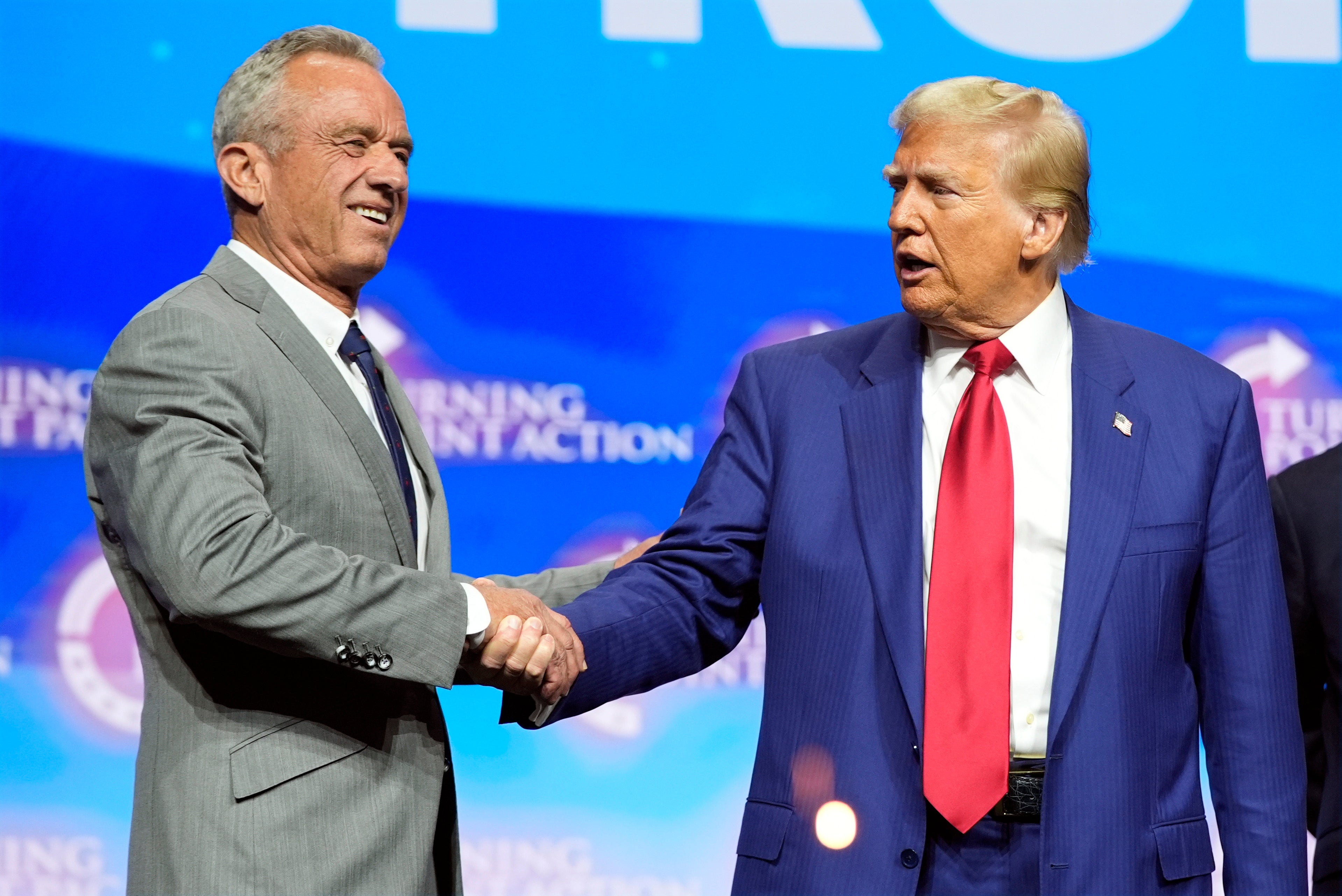Could third-party voters spoil the 2024 election?
Jill Stein and Cornel West could peel vital votes away from Kamala Harris on Tuesday – but Robert F Kennedy Jr could do the same to Donald Trump
Kamala Harris and Donald Trump’s race for the White House is down to its final hours of campaigning, with most pollsters agreeing that the outcome remains much too close to call.
Top elections analyst Nate Silver has predicted that this year’s vote is “a toss-up” and could go either way, giving the Republican a 51.5 percent chance of winning to Harris’s 48.1 percent.
Meanwhile, the final pre-election New York Times/Siena College poll finds that the vice president is narrowly leading in the key swing states of Nevada, North Carolina, Wisconsin and Georgia, with her rival leading in Arizona while Pennsylvania and Michigan remain deadlocked.
With such fine margins in play, the result is likely to come down to a handful of undecided or persuadable voters in those seven swing states – meaning even small shifts in the voting intentions of individual blocs could take on huge significance.
So what impact might third-party candidates have on the outcome of the race?
Jill Stein of the Green Party, Professor Cornel West and independent turned Trump ally Robert F Kennedy Jr have no realistic chance of claiming the White House for themselves.
But, their involvement in the election could prove pivotal.
Both Stein and West could benefit from disaffection among Democratic voters in Michigan, for instance, over growing anger about the Biden administration’s handling of recent events in the Middle East, particularly the Israeli military’s actions in Gaza.
President Joe Biden was targeted by the “uncommitted” movement during the primaries in late February when more than 100,000 people in the state, which has a sizeable Arab-American population, used their ballot papers to signal their discontent with the president and to warn him not to take their support for granted.

Since succeeding Biden on the ticket, Harris has increasingly been called upon to address the conflict in Gaza by hecklers at her rallies. She has attempted to draw a distinction between herself and the president, but, if voters are not convinced, Stein and West (and perhaps even Trump) stand to gain.
Stein in particular has been overtly critical of Israel’s conduct, received a warm reception when she attended the American Arab Anti-Discrimination Committee’s annual convention earlier this year and has received endorsements from the American Arab and Muslim PAC and from the Abandon Harris group.
Addressing the likely role of third-party candidates, Trump declared at a rally in Philadelphia in June prior to Biden’s decision to step aside: “Cornel West – he’s one of my favorite candidates, Cornel West. And I like – I like her also. Jill Stein. I like her very much. You know why? She takes 100 percent from [Biden]. He takes 100 percent. Kennedy’s probably 50/50, but he’s a fake.”
While Stein and West might pose a threat to Harris, RFK Jr threatens to do the same to Trump.
RFK Jr had been running as an indeendent but suspended his campaign and threw his support behind the former president, reportedly in exchange for a role in the possible future Trump administration.
Trump has duly spent the final weeks of the election cycle talking about giving RFK Jr free rein to do “anything he wants” and “go wild” over women’s health, food and medicines but the eccentric Kennedy dynasty heir could yet cause him a problem at the polling booths.

Despite his best efforts to remove himself, RFK Jr is still on the ballot in Michigan and Wisconsin.
The US Supreme Court ruled late last month against his emergency appeal to be removed in a bid not to inadvertently harm Trump by picking up unwanted votes.
The decision forced Kennedy into the unusual position of taking to X to beg his fans not to vote for him on November 5.
Bernard Tamas, a professor of political science at Valdosta State University, told The Guardian that this accidental challenge could be dubbed the “Nikki Haley effect.”
“Nikki Haley dropped out of the primaries and was still gaining a significant percent of Republican votes,” Professor Tamas explained.
“If you take the many Republicans who are unhappy with Trump as the candidate, and if they don’t want to vote for Harris, they might wind up voting for RFK, even knowing full well that he’s not even on the ballot. Just basically as a protest.”
Join our commenting forum
Join thought-provoking conversations, follow other Independent readers and see their replies
Comments
Bookmark popover
Removed from bookmarks